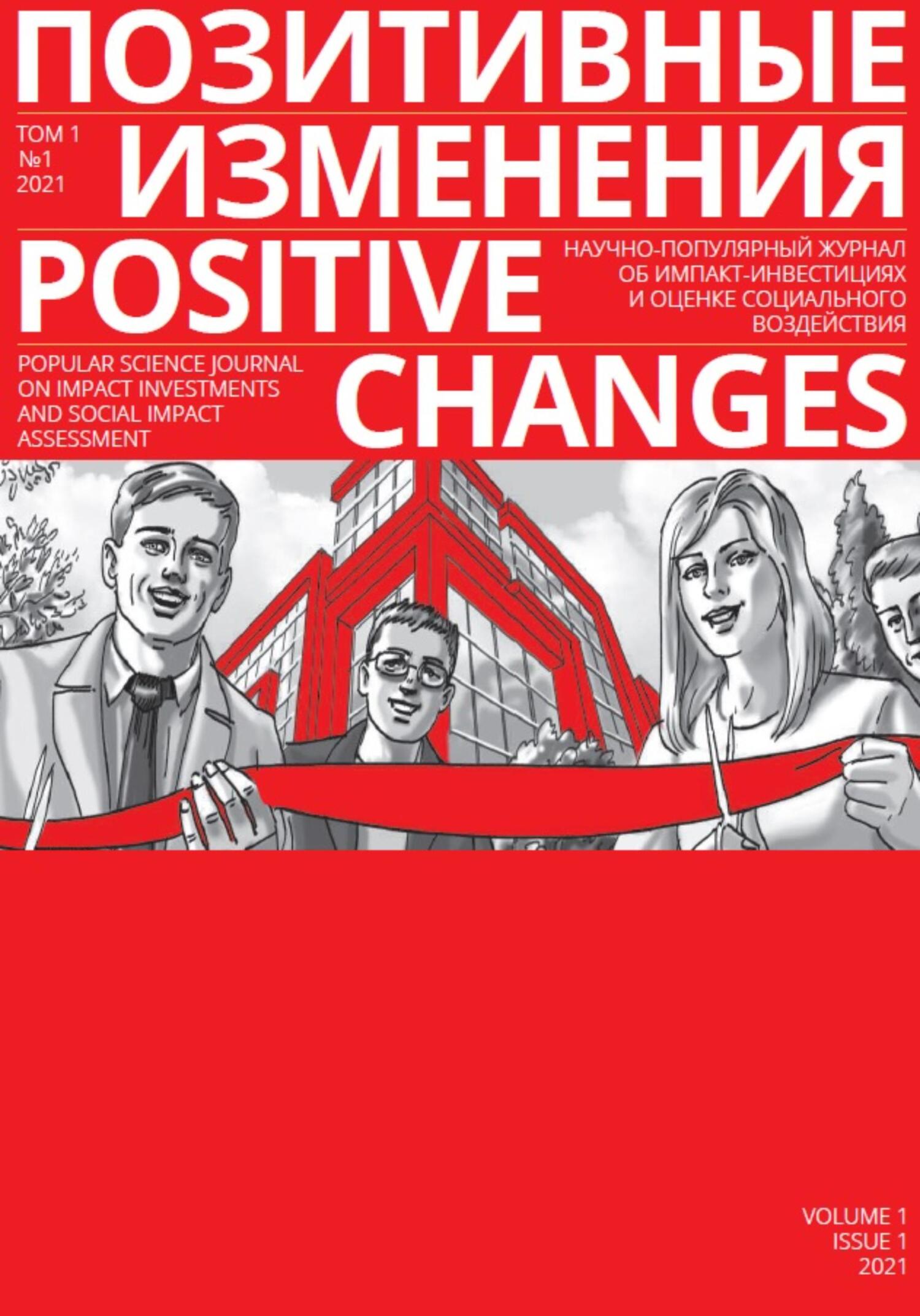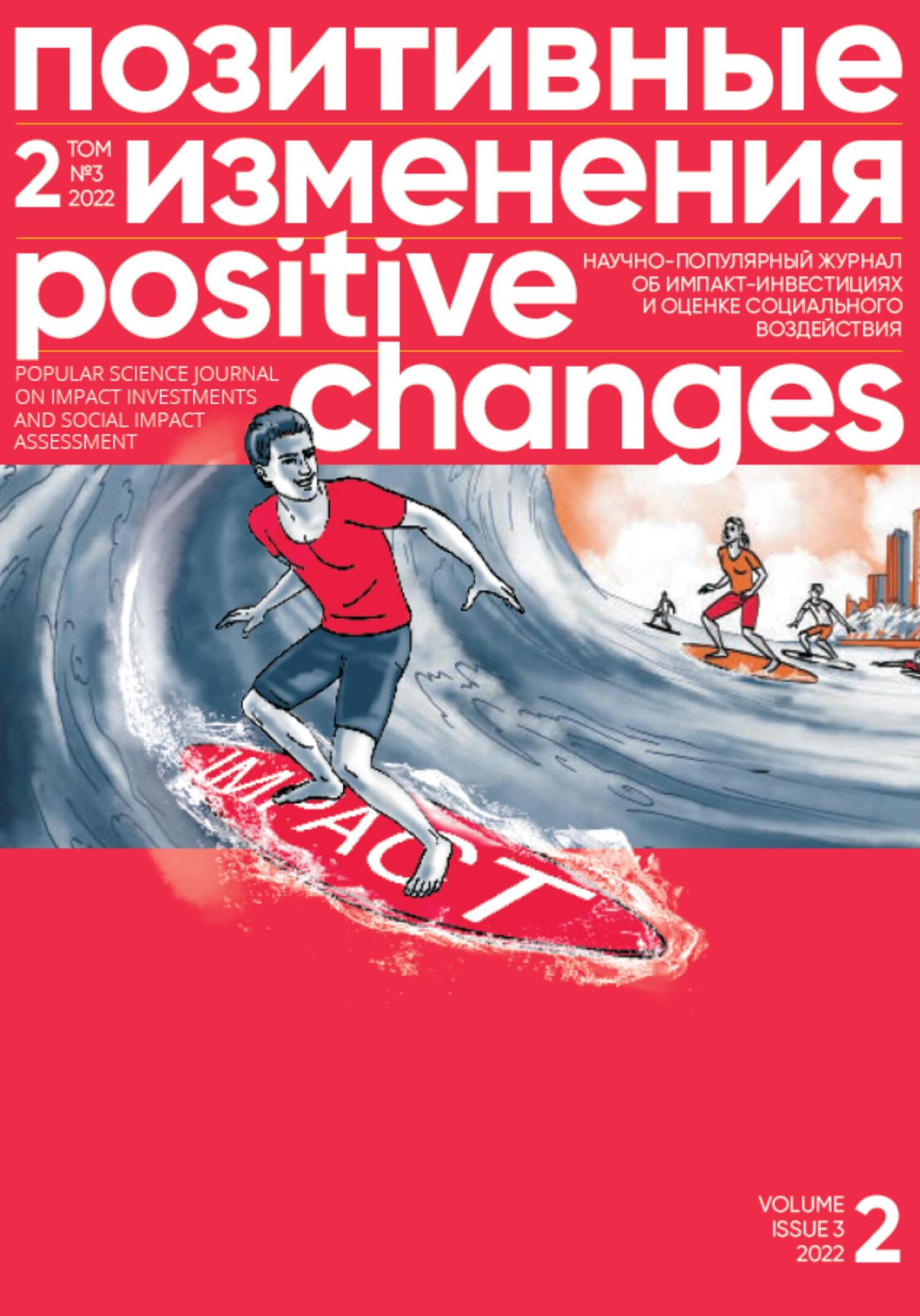further investigation of other variables that may affect the companies’ income levels is recommended. This approach can establish the basis for rating sustainability performance of various companies, providing a more reasonable pattern of causal relationships between various aspects of corporate social investment and company performance.
https://clck.ru/ia3A4
ARE BUSINESS ETHICS EFFECTIVE? A MARKET FAILURES APPROACH TO IMPACT INVESTING
2022, Journal of Business Ethics. Rodney Schmidt
We evaluate the effectiveness of impact investing from the perspective of the market failures approach (MFA) to business ethics. Under the MFA, businesses are ethically obligated to contribute to market efficiency by mitigating market failures. The MFA ethics literature emphasizes a negative externality interpretation of market failures, with ethical practice as self-regulation. We argue that the MFA also obligates businesses, and investors, to produce positive externalities, a form of private provision of public goods. We develop a graphical MFA ethical framework addressed to impact investing. The framework is based on impact projects’ dual financial and social returns. Dual returns trade-offs originate in market failures and increase with positive externalities. In practice, a key determinant of market failure and the size of returns trade-offs is the availability of intermediate public goods. This varies systematically across sectors and country-markets. We identify the market circumstances under which impact investing is feasible. We show how provision of positive externalities mitigates market failures. We show that the effectiveness of impact investing depends on the interaction of the determinants of feasibility and of the size of project trade-offs. We show how government supporting intervention, through blended finance vehicles, can improve impact investing effectiveness. Finally, we show that evidence of actual patterns of impact investing across sectors and countries supports our analysis.

https://clck.ru/iZVoT
PARTNERSHIPS FOR THE GOALS IN AFRICA: IMPACT INVESTORS AND SOCIAL ENTREPRENEURS THROUGH THE LENS OF THE UNITED NATIONS SUSTAINABLE DEVELOPMENT GOALS, CHAPTER IN WORLD SCIENTIFIC ENCYCLOPEDIA OF BUSINESS SUSTAINABILITY, ETHICS AND ENTREPRENEURSHIP
2022, World Scientific Encyclopedia of Business Sustainability, Ethics and Entrepreneurship. Oluwaseun Oguntuase
African countries performed poorly in achieving the Millennium Development Goals (MDGs) and are lagging behind the rest of the world in terms of achieving the United Nations Sustainable Development Goals (SDGs). In Africa, the achievement of development goals depends on the generation and success of entrepreneurship to address sustainability challenges. A major challenge to the success of development goals and entrepreneurship in Africa is lack of finance. Taking financial capital as a prerequisite resource to effectively exploiting social entrepreneurial opportunities, this chapter adopts the resourcebased entrepreneurship theory to identify impact investors as the providers of financial resources to social entrepreneurs for contributing to the achievement of SDGs in Africa. The chapter employs a systematic literature review and illustrative case examples to demonstrate how impact investment can play an essential role in attracting private capital to finance social enterprises toward the realization of SDGs in Africa. The chapter highlights how social entrepreneurs and impact investors distinguish themselves through their social and environmental objectives, and explores how stakeholders could best rally around the overlapping interests in impact investing and social entrepreneurship to achieve the UNSDGs. The chapter argues that investors and social entrepreneurs will play a significant role towards the achievement of SDGs in Africa.

https://clck.ru/iZQQw
SOCIAL IMPACT INVESTING: AN AUSTRALIAN PERSPECTIVE
24.12.2021, Routledge. Stewart Jones, Helena de Anstiss, Carmen Garcia
Social impact investing is gaining ground as one of the most important investment trends in the world. While the size of the social impact investing market is still relatively small in global terms, momentum continues to grow unabated. Australia in particular is looking to develop a vibrant and transparent social impact investment market. This book considers a number of innovative strategies and pragmatic policy initiatives that can see the social impact investment market flourish in Australia and internationally.
The book describes how social impact investing can enter the investment mainstream and how a high-quality regulatory framework governing the measurement, reporting and evaluation of social impact will be critical to building investor confidence and ensuring the credibility, effectiveness and transparency of this market. It also examines different approaches to measurement and evaluation that will ultimately be critical to the success of this market. The authors also recognize that governments have a pivotal role to play in growing the social impact investing market, not only in its capacity as a market facilitator and regulator but also as an active purchaser of social outcomes.
This book will be informative for those who wish to learn more about how governments, private investors, investment intermediaries, social enterprises, service providers and other market participants around the world can work together to initiate and grow a vibrant, transparent and well-functioning social impact investing market.
https://clck.ru/iYyQ2
IMPACT MEASUREMENT CONSIDERATIONS FOR PRIVATE MARKET INVESTORS
2022, The Journal of Wealth Management. Kenneth B. Trippe and Essma Bengabsia
Sustainable and impact investment assets within private markets have risen significantly over the past two decades, with private investment dollars that seek to create environmental or social impact increasing over twentyfold from 2000 to 2020 (Pitchbook, 2021). Yet impact measurement and management remain key challenges for investors and asset owners. In this article, the authors analyze existing approaches to impact measurement and introduce a methodology for calculating and aggregating impact metrics across a private portfolio. This methodology, built based on a mix of leading impact measurement frameworks and insights from expert consultants, provides investors and asset owners with guidance on how to capture, aggregate, and report on impact metrics across an entire portfolio.
https://clck.ru/iZyMr
Новая жизнь издательского проекта «Каталог «Социальное предпринимательство России»
Владимир Вайнер
«Журнал в журнале» — так можно назвать этот блок материалов. Авторы сборника «Социальное предпринимательство России», выходившего с 2014 года, перенесли свою активность в качестве отдельной рубрики в журнал «Позитивные изменения» в 2021 году. И










